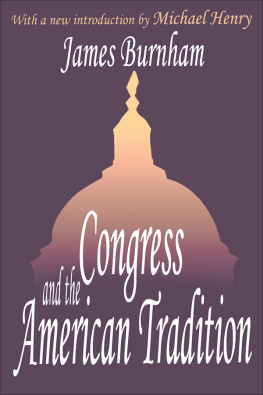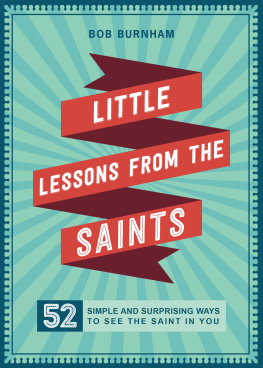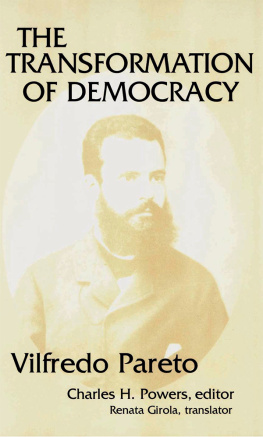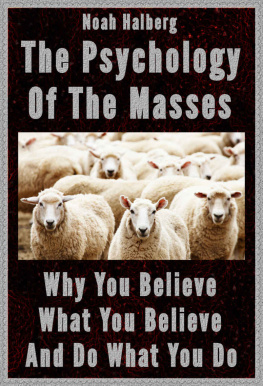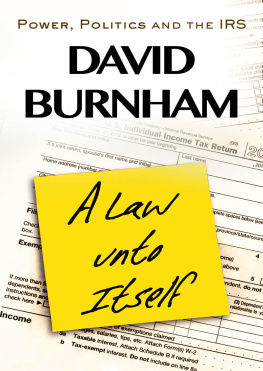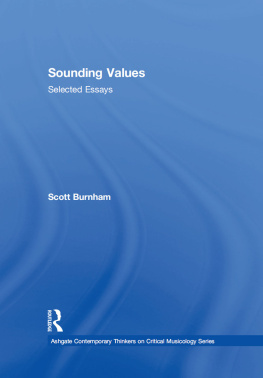THE
MACHIAVELLIANS
DEFENDERS OF
FREEDOM
James Burnham
James Burnham 1943
James Burnham has asserted his rights under the Copyright, Design and Patents Act, 1988, to be identified as the author of this work.
First published in 1943 by The John Day Company, Inc.
This edition published in 2019 by Endeavour Media Ltd.
Table of Contents
T hird F isherman . Master, I marvel how the fishes live in the sea.
F irst F isherman . Why, as men do a-land; the great ones eat up the little ones.
Pericles, Prince of Tyre
ADDITIONAL INFORMATION
I come now to the last branch of my charge: that I teach princes villainy, and how to enslave. If any man will read over my book with impartiality and ordinary charity, he will easily perceive that it is not my intention to recommend that government or those men there described to the world, much less to teach men how to trample upon good men, and all that is sacred and venerable upon earth, laws, religion, honesty, and what not. If I have been a little too punctual in describing these monsters in all their lineaments and colours, I hope mankind will know them, the better to avoid them, my treatise being both a satire against them, and a true character of them
N iccolo M achiavelli ,
from a Letter to a Friend .
PREFACE TO THE GATEWAY
EDITION
This book was written a generation ago, a short time for mankind but long enough by an individual reckoning. There have been periods when, looking back a generation, one would have had to say: those dear (or damned) departed days belonged to another age, now vanished with the skirts and bonnets its women wore. I do not see it so, when, from this platform of 1963 I view once more the happenings of 1941 and 1942 through the memories opened up by reading the proofs of the paragraphs I was writing then. Those years of wars and revolutions, death camps and propaganda machines, the collapse of old orders and the wanderings of the peoples, belong most recognizably to the same age that is still ours in 1963.
Most of the text is the more or less systematic exposition of the theories of Machiavelli and a small group of rather inaccessible more recent writers whom I call Machiavellians. Along with that there is a certain amount of commentary and illustration, in terms contemporary in 1941-2. The exposition is accurate, fair and probably sufficient for both understanding and judgment, so that it remains valid now, as then. Some of the commentary and illustration strikes me as a little callow or archaic; but perhaps it is just as well not to lose too many illusions too early. (I have made a few changes in the text here and there, to untie it from too close links to what was its present, or to straighten obscurities.)
Writing this book was primarily, I suppose, as most books are for their authors, a matter of self-education; more particularly, of the long re-education I had to undertake after seven Trotskyist years. I was grateful to these Machiavellians, and perhaps I gave them rather more than their due. Having come to know something of the gigantic ideology of Bolshevism, I knew that I was not going to be able to settle for the pigmy ideologies of Liberalism, social democracy, refurbished laissez-faire or the inverted, cut-rate Bolshevism called fascism. Through the Machiavellians I began to understand more thoroughly what I had long felt: that only by renouncing all ideology can we begin to see the world and man.
J ames B urnham
Kent, Connecticut
February, 1963
Part I
DANTE: POLITICS AS WISH
The Formal Meaning
of D e M onarchia
In the 1932 Platform of the Democratic party we may read the following:
Believing that a party platform is a covenant with the people to be faithfully kept by the party when entrusted with power, and that the people are entitled to know in plain words the terms of the contract to which they are asked to subscribe, we hereby declare this to be the platform of the Democratic party.
The Democratic party solemnly promises by appropriate action to put into effect the principles, policies and reforms herein advocated and to eradicate the policies, methods and practices herein condemned.
We advocate:
1) An immediate and drastic reduction of governmental expenditures by abolishing useless commissions and offices, consolidating departments and bureaus and eliminating extravagance, to accomplish a saving of not less than 25% in the cost of the Federal government
2) Maintenance of the national credit by a Federal budget annually balanced on the basis of accurate executive estimates within revenues
3) A sound currency to be preserved at all hazards
We condemn:
4) The open and covert resistance of administrative officials to every effort made by Congressional committees to control the extravagant expenditures of the government
5) The extravagance of the Farm Board, its disastrous action which made the government a speculator in farm products
To accomplish these purposes and to recover economic liberty we pledge the nominees of the convention
That the nominees upheld the pledge was made clear by the candidate for the Presidency on July 2, 1932, when he spoke in public acceptance of the nomination:
As an immediate program of action we must abolish useless offices. We must eliminate actual prefunctions of governmentfunctions, in fact, that are not definitely essential to the continuance of government. We must merge, we must consolidate subdivisions of government, and like the private citizen, give up luxuries which we can no longer afford.
I propose to you, my friends, and through you, that government of all kinds, big and little, be made solvent and that the example be set by the President of the United States and his cabinet.
He returned to these themes frequently throughout the campaign. In a radio address delivered July 30, 1932, for example, he summed up: Any government, like any family, can for a year spend a little more than it earns. But you and I know that a continuation of that habit means the poorhouse.
What are we to make of the words in these several quotations? They would be easy enough to explain if we could assume that the men who wrote them were just liars, deliberately trying to deceive the people. There is, however, no convincing evidence that would permit us to draw so cynical a conclusion. Are we to believe, then, that they were utterly stupid, with no understanding of economics or politics or what was going on in the world? Taking the words as they stand, this would seem to be the only alternative conclusion. But this also does not seem very plausible. These men and their associates, though they doubtless knew less than everything and less than they thought they knew, were surely not so ignorant as to have believed literally what the words seem to indicate. There is some further puzzle here. Perhaps the words do not really have anything to do with cheap government and sound currency and balanced budgets and the rest of what appears to be their subject matter.
We are asking questions about the meaning of the words men use in connection with political and social affairs. In order to avoid bias from partisan feelings of the moment and to seek a greater generality in the answer, I shall briefly examine these same questions as they arise over words written more than six centuries ago.
* * *
Dante Alighieri, besides the most wonderful poem ever written, finished only one other major work. This was a treatise on politics, which he called De Monarchia , a title that may be translated as On the Empire. De Monarchia is divided into three Books, each of these sub-divided into numerous chapters. The general subject stated by Dante is the knowledge of the temporal monarchy which is called empire, by which is meant a unique princedom extending over all persons in time. The topics for the three Books are explained as follows: In the first place we may inquire and examine whether it [the unique empire] is needful for the well-being of the world; in the second, whether the Roman people rightfully assumed to itself the function of monarchy; and in the third, whether the authority of the monarchy depends immediately upon God, or upon some other minister or vicar of God. The empire that Dante has concretely in mind is the Holy Roman Empire of medieval times, which he mistakenly believed to be the continuation of the ancient Roman Empire.
Next page

